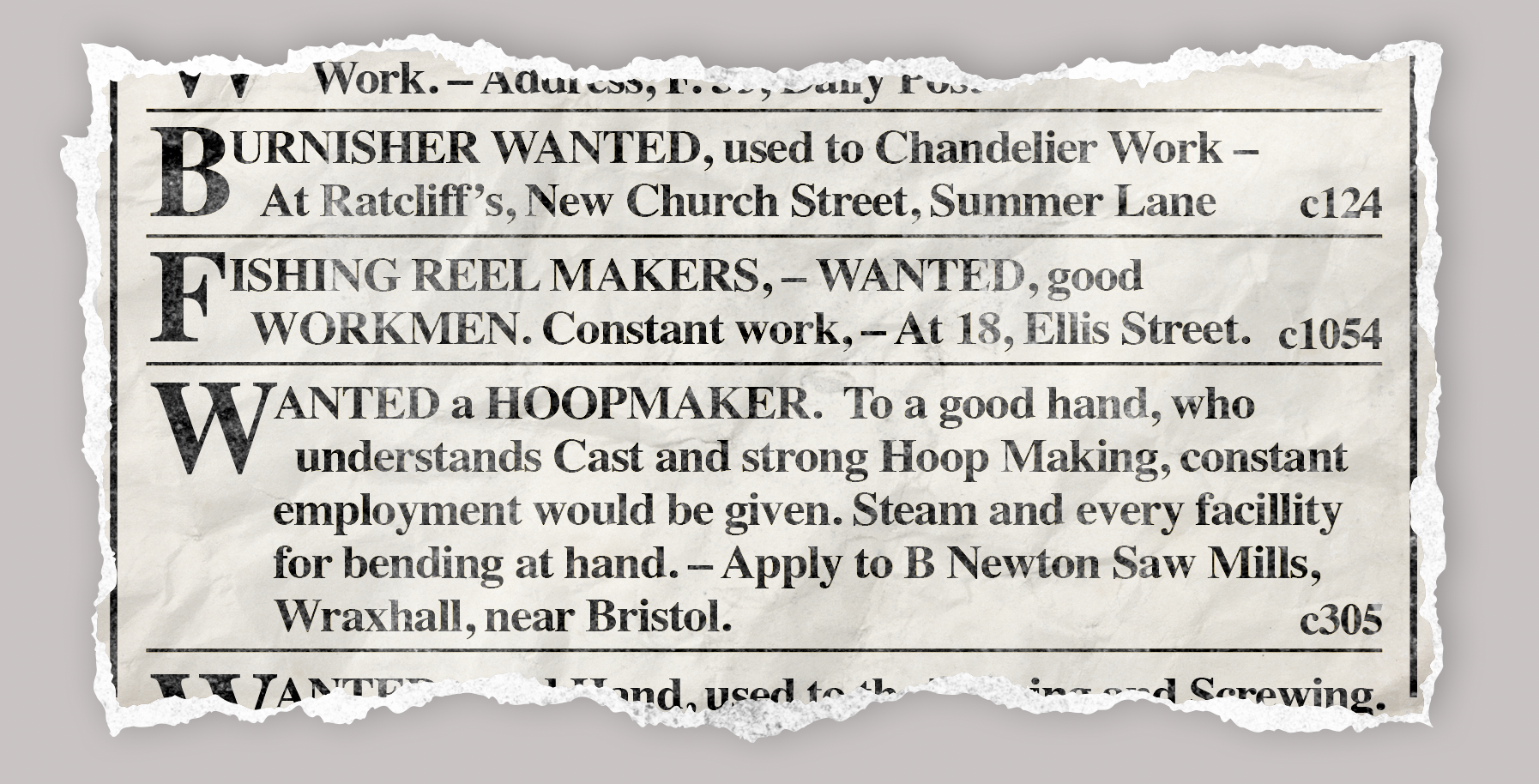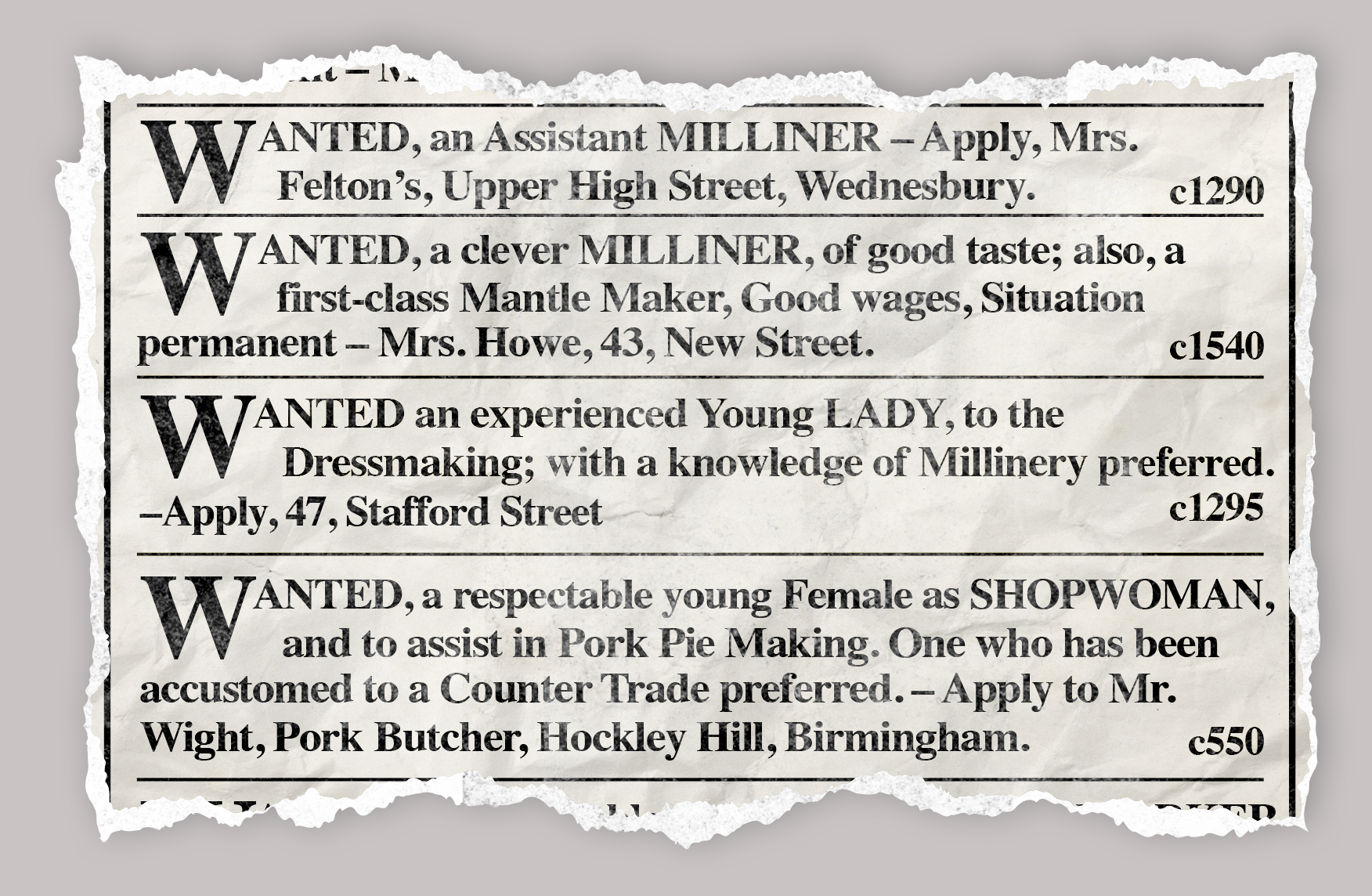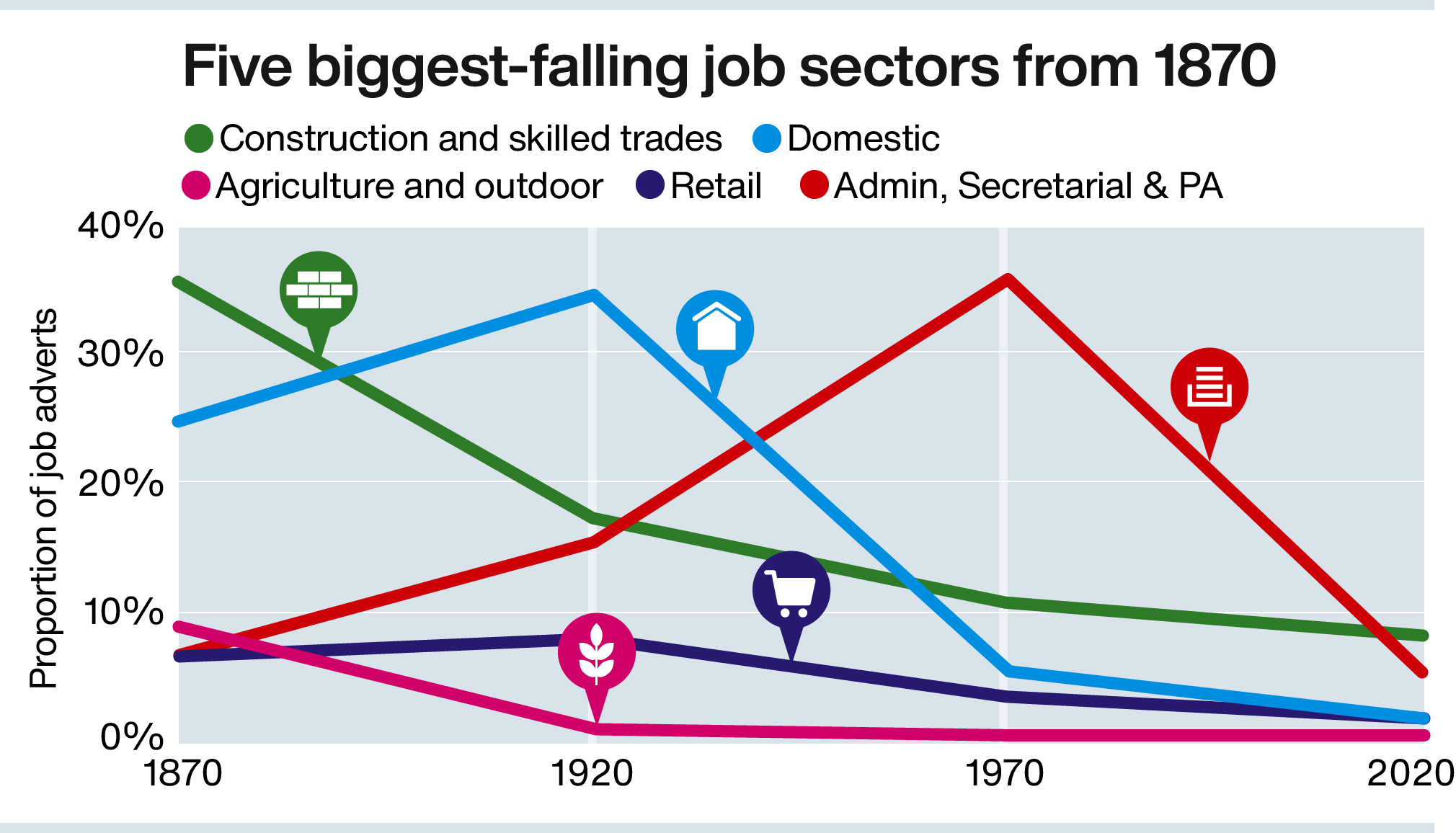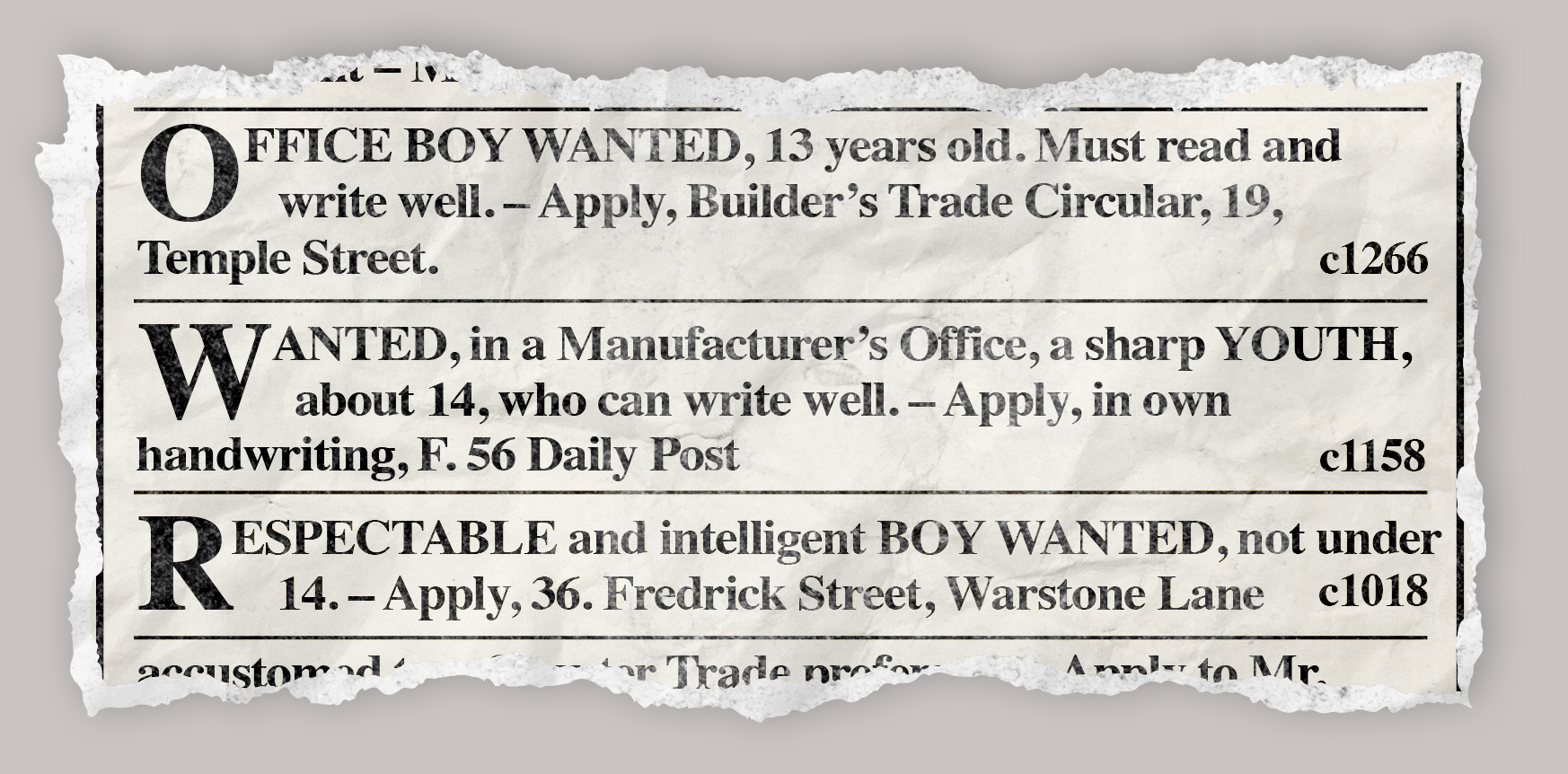Ever wondered what job you would have been doing 150 years ago? You could have been a chandelier burnisher, servant or even a toast rack maker.
We’ve all laughed at friends who have crazy job roles before, haven’t we? There’s always that one mate whose business card proclaims them as a Chief Cloud Developer, and we imagine them using a complicated-looking machine to send marshmallow-like puffs of cumulo-nimbus into the sky.
But weird and wonderful work titles aren’t the sole preserve of the modern era, and we’ve trawled newspaper job adverts from as far back as 1870 to see what roles people were being enticed by back then.
Who wants to be a milliner?
A lot of the jobs advertised in 1870 and 1920 no longer exist, with evocative roles such as milliner (a women’s hat maker), chandelier burnisher, billiard room attendant, lift attendant, wig consultant, gun polisher and whalebone rosette maker painting a picture of a world long lost to us.

One thing’s for sure: a career as a lift attendant would have a lot of ups and downs!

What do you want to be when you grow up?
If you’ve ever wondered what job you might have had in bygone eras, try our fun tool below. Simply enter your age, gender and highest educational achievement, and you can see what roles you might have had in 1870, 1920 and 1970.
A changing world
From surveying the pages of the Birmingham Daily Post in 1870, chances are that you could be drawn to work in the garment trade, with the majority of roles advertised seeking dressmakers, drapers and tailors. In fact, a third of roles in the job pages of 1870 were for skilled trades like metalworkers, joiners and carpenters, and shoemakers.
Alternatively, you could have joined the hordes of people working in domestic roles, with a quarter of advert seeking housekeepers, parlour maids, cooks and nannies to keep the homes of the well-to-do running. It might seem alien to you and I, but the job titles of ‘servant’ was one that was all too common in the jobs pages back then.

The world had changed by 1920, with domestic roles now making up a third of advertised jobs. At the same time, farming positions declined as jobs became mechanized, and skilled trades fell to less than a fifth of the Situations Wanted column.
Administrative and secretarial roles grew through the decades, rising from 7% of job adverts in 1870 to 15% by 1920 and a massive 36% by the 1970s, when one of the most common titles was copy-typist. These roles declined dramatically with the rise of the personal computer, with only 4% of modern jobs now in this category.


Improvements in equality laws
Some of the adverts from 150 years ago show the progress that has been made through equality laws, with many roles specifically requesting a ‘young man’ despite the fact that the role could easily be completed by a person of either sex.
More eye-opening are the adverts for positions like office boy that specifically request applicants are aged 13. Modern employment laws specify that children can only take full-time work once they have reached the minimum school leaving age of 16.

The research was conducted by surveying the jobs pages of Liverpool Echo, Liverpool Courier and Commercial Advertiser, Birmingham Daily Post and Birmingham Daily Gazette from 1870, 1920, 1970 and comparing with modern employment websites.






